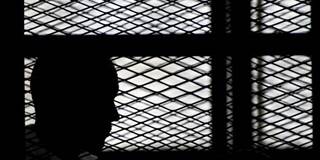More than money is at stake in Al Jazeera's $150 million suit against the Egyptian government for disregarding provisions of a bilateral agreement with Qatar. The suit claims that the broadcaster's right to freedom of expression was violated, creating the possibility of using trade and investment pacts to protect media freedom.
NEW YORK – At the beginning of this year, Al Jazeera sued the Egyptian government for $150 million. The Qatar-based news channel presented its case before the World Bank’s International Centre for Settlement of Investment Disputes in Washington, DC. But much more is at stake than a simple commercial disagreement in which Al Jazeera is attempting to enforce Egypt’s obligations under a bilateral investment treaty with Qatar.
In its suit, Al Jazeera alleges that its offices were closed, its transmissions and broadcasts were jammed, its license canceled, its local branch liquidated in a compulsory procedure, and its journalists subjected to harassment, arrest, and detention for political reasons. The station is making the case that these infringements on freedom of expression mean that Egypt is in violation of its obligations under international human-rights treaties.
The significance of Al Jazeera’s suit for advancing freedom of expression is potentially transformative, and it deserves wide attention. If successful, the case will demonstrate how existing international law can be used to enforce the global norms that are essential for the free flow of information, even though human-rights treaties lack a direct mechanism for enforcement.

NEW YORK – At the beginning of this year, Al Jazeera sued the Egyptian government for $150 million. The Qatar-based news channel presented its case before the World Bank’s International Centre for Settlement of Investment Disputes in Washington, DC. But much more is at stake than a simple commercial disagreement in which Al Jazeera is attempting to enforce Egypt’s obligations under a bilateral investment treaty with Qatar.
In its suit, Al Jazeera alleges that its offices were closed, its transmissions and broadcasts were jammed, its license canceled, its local branch liquidated in a compulsory procedure, and its journalists subjected to harassment, arrest, and detention for political reasons. The station is making the case that these infringements on freedom of expression mean that Egypt is in violation of its obligations under international human-rights treaties.
The significance of Al Jazeera’s suit for advancing freedom of expression is potentially transformative, and it deserves wide attention. If successful, the case will demonstrate how existing international law can be used to enforce the global norms that are essential for the free flow of information, even though human-rights treaties lack a direct mechanism for enforcement.